Dr. Omar Janneh (PhD)
The Constitution of The Gambia does not give anyone the right to pick up arms and overthrow an elected government. Anyone who makes the opposite remarks is dangerous and must not be given a megaphone to spread such a dangerous destabilising message. It was alarming to read the piece “The Gambian Constitution gave Alagie Barow, the right to pick up arms to overthrow Jammeh’s gov’t; American laws do not apply in the Gambia – TRC’s Baba Galleh Jallow!” published on August 14, 2018. If the views expressed here are those of Dr. Baba G. Jallow, mine is that they are a misrepresentation of the spirit of the Constitution of The Gambiaand therefore the statement must be withdrawn immediately and further clarification by Dr. Baba G. Jallow of his position seems appropriate. My reaction to the interview piece is based on my understanding of the Gambian Constitution which happens to be in line with other individuals who are also (VERY) familiar with the Constitution of The Gambia. In dealing with this issue, I shall have to make reference to the problematic TRRC Act, 2017 because it is the source of the ongoing conversation. [Please do excuse me for the length of the piece.]
First, it has to be said that the American laws have helped shield many exiled individuals from many parts of the world out of harm’s way and so we remain grateful to countries such as America for their laws that provided a welcoming environment, a home that protects people fleeing from repressive regimes of the sort we endured for some 22 years. I think it should be the aspiration of us as a People to aspire to (much of) the rule of law and democracy in America.
I have not seen any evidence which suggests that Mr. Alagie Barrow is a serial murderer as a reason for why he should not be employed in the (seemingly conflicted) TRRC. And before we get into the arguments, it sounds to me as though the following lines may have been accidentally plagiarised because they seem to bear the familiar trademark of someone who is now in exile: “Gambian laws are not American laws. American laws are not Gambian laws. You want us to be ruled and administered by American laws in the Gambia?” These are the words of Dr. Baba G. Jallow!
Mr. Alagie Barrow’s criminal history in the US has a bearing on his capacity to take up employment in the (conflicted) TRRC because he is conflicted. How difficult can it be for the (seemingly conflicted) interview panel to admit their failure to observe due process in their recruitment and selection process (TRRC Act, 2017; section 17(1-4)?We must be clear, I do not think there is any disagreement that Mr. Alagie Barrow has a right to be gainfully employed; he has to earn his living. The issue is whether the (seemingly conflicted) interview panel followed due process in regards to section 17(1-4) of the problematic TRRC Act, 2017 in considering him for employment to perhaps one of the most important posts of the Commission. The issue remains that Mr. Alagie Barrow committed a crime in The Gambia, as far as the Gambian Constitution is concerned. Of course, we can objectively debate about the fact that he was not convicted of his crimes in The Gambia. But I think we all know what would have happened had he been caught by Jammeh. Mr. Alagie Barrow’s actions did not defend the Constitution of the country as clearly stated in section 6 of the 1997 Constitution of The Gambia, so it’s hoped that Dr. Baba G. Jallow is not relying upon section 6 of the Gambian Constitution to legalise Mr. Alagie Barrow and his compatriots’ failed coup of December 30, 2014. If it is, then there is no substance to the claim – it is wrong and unconstitutional. Please find below section 6 of the Constitution of The Gambia:
[Section 6
Defense of the Constitution
- Any person who –
- by himself or herself or in concert with others, by any violent or other unlawful means, suspends or overthrows or abrogates this Constitution or any part of it, or attempts to do any such act, or
- aids and abets in any manner any person referred to in paragraph (a) commits the offence of treason and shall, on conviction, be liable to the penalty prescribed by an Act of the National Assembly for that offence.
- All citizens of The Gambia have the right and the duty at all times to defend this Constitution and, in particular, to resist, to the extent reasonably justifiable in the circumstances, any person or group of persons seeking or attempting by any violent or unlawful means to suspend, overthrow or abrogate this Constitution or any part of it.
3) A person who resists the suspension, overthrow or abrogation of this Constitution as provided in subsection (2), commits no offence.]
As can be seen, there is nothing in section 6 of the Constitution of The Gambia or anywhere in the Gambian Constitution that permits the use of arms to unseat an elected government. It goes without saying that Jammeh abused The Constitution of The Gambia. He intimidated, tortured, oppressed, marginalised, killed us, forcefully taken our properties, abused our rights, etc. Thus he abrogated his duties to preserve the Constitution of The Gambia which guarantees us our rights as Gambians and as human beings. However, Jammeh’s wrongdoing should not give us the grounds/licence to take up arms against his government. Yes, he took over power using the gun, but that is a path we must always avoid. In fact, it may be argued that what Jammeh did in 1994 was not done on behalf of the majority of Gambians.
On the constitutionality of Mr. Alagie Barrow taking up arms to overthrow Jammeh’s government, do we seriously think that Jammeh would have permitted the retention (-if it ever existed) or inclusion of any section of the Constitution that allowed individuals to take up arms and remove him? And to draw parallels between such actions to the rights to insurrection (in other countries in the very, very distant past) is a twisting of facts. Yes, Jammeh did some heinous things, but let’s not confuse issues and also confuse people and consequently push the country off the cliff edge. Are we comparing like for like? I think enlightened individuals should help chart a better path for our young democracy, not spread untruths that may destabilise the gains we have already made. Like never before, the assertions made in the interview piece further underscore my view that the (conflicted) Executive Secretary of the (seemingly conflicted) secretariat of the TRRC is not suited to the post he has been assigned. I think it is very wrong and dangerous for anyone, especially in his position, to say that it is legal under the Constitution of The Gambia (and of any country for that matter) that individuals could take up arms and overthrow an elected government. The “argument”gets even more bizarre and twisted. For example, I thought Dr. Baba G. Jallow’s position is that “Gambian laws are not American laws”, but he seems to be suddenly in favour of the US law, the Second Amendment, becoming Gambian law? Someone needs to tell Dr. Baba G. Jallow that in The Gambia, we remove elected governments through a democratic route called elections. Indeed, the coalition has shown that it works. That winning formula should have been applied sooner. You see, teamwork works, but “teamwork” does not work! Governments that are unseated using the barrel of the gun have a real tendency to use intimidation, marginalisation, rights abuses, and so on to stay in power, because the Executive never feel secure. Violence does not work. Is this not one of the lessons we are supposed to learn from the TRRC?
A highly reliable source said that a panel of three individuals [Dr. Baba G. Jallow, Ms Musu Bakoto Sawo and a lady (Austrian/German?)] not four interviewed a candidate for the same post as Mr. Alagie Barrow. For the sake of consistency and transparency, would it be right that, for the same post, 4 people interviewed Mr. Alagie Barrow yet 3 interviewed another applicant? Could it be that the panel already picked their candidate and that they closed their minds to any other potentially suitable (un-conflicted) candidate?
We are all entitled to our views on the appointments to the (now seemingly conflicted) TRRC. I am of the view that Dr. Baba G. Jallow and Mr. Alagie Barrow are both conflicted; and the more we know about the other appointments, the worse it gets. And here is how it started: The President should have known that Dr. Baba G. Jallow is conflicted, yet he, in consultation with the Minister and the Public Service Commission seemingly ignored section 17(1-4) of the problematic TRRC Act, 2017 and employed Dr. Baba G. Jallow [TRRC Act, 2017; section 22(2)] who must know that he is conflicted. I think the Minister is a trained lawyer who is expected to know that Dr. Baba G. Jallow is conflicted. In fact, doesn’t the Minister know that we happen to know that he approached other individual(s) to apply for a post in the TRRC, but they declined to express an interest in applying for any post in the TRRC because of (perceived) conflicts of interests? By appointing conflicted individuals and allowing them to also appoint (TRRC Act, 2017; section 24(1-3), it’s obvious that the appointments from then on would follow a very slippery path and they seem to have – we have seen conflicted individual(s) appointing (seemingly) conflicted individual(s) into the now seemingly conflicted TRRC. The seeming conflicted TRRC appears to be an expanding team of interconnected (seemingly) conflicted friends/individuals. For some unknown reason(s), Dr. Baba G. Jallow seems to be blinded by reality and this seems apparent in his simplistic view of the task he has taken on. Although Dr Baba G. Jallow is entitled to his opinion, surely he must know that it is not about what he thinks of himself -although we know he is a victim. What is at stake is what the rest of us and the world think and Dr. Baba G. Jallow must wake up to that fact.
Dr. Baba G. Jallow must not make the mistake of correlating education (and military career) with the ability to carry out research and investigations on an assignment of this magnitude. In announcing the appointment of Mr. Alagie Barrow, Dr. Baba G. Jallow told us what he thought we needed to know about Mr. Alagie Barrow, but what he failed to tell us was the involvement of Mr. Alagie Barrow (and his compatriots) in the failed December 30, 2014 coup. More importantly, would it not have been useful to also tell us that Mr. Alagie Barrow has x number of relevant (peer-reviewed) publications to his name which make him the right person for the post he was appointed to – provided he is not conflicted of course? And what is the relevance of the reference made to Mr. Alagie Barrow’s military career? Was that experience an essential and or desirable criteria of the post of Director of Research and Investigations Unit and if so, why was it not stated in the advert? Is there anything implied in the reference to his military career that we/the perpetrators/victims/victims’ families need to know about? Additionally, should we make anything of his remarks that “The Gambian Constitution gave Alagie Barow, the right to pick up arms to overthrow Jammeh’s gov’t; American laws do not apply in the Gambia and Mr. Alagie Barrow’s (previous) desire to pick up arms and overthrow an elected government? I think that Mr. Alagie Barrow’s felony records (in the US) should be a concern to the conflicted TRRC (refer to section 6 of the Constitution of the Gambia and section 17(1-4) of the TRRC Act, 2017). There have been very clear failings in the recruitment and selection of staff to the (conflicted) TRRC by the (seemingly conflicted) interview panel, which may be the result of their lack of experience or apparent disregard of the Gambian Constitution and of the problematic TRRC Act, 2017.
Without saying much more, most people wanted to see Jammeh out and I think it will not be an underestimation to say that most wouldn’t care how he went as long as he got out of lives. The reality though is that the action of Mr. Alagie Barrow and his compatriots (-and we are free to salute them, if we so wish) – some of blessed memory, were not within the confines of the Gambian Constitution. I have not read the Constitution of all of the countries of the World, but I think one can safely say that it will be absurd for the constitution of any country to state that the citizens have a right to take up arms and change their government – Imagine the frequent chaos, death and destruction. [Could this be the reason why we (Africa) are so backward?]It is simply absurd, ludicrous! And to give examples of what happened in the American Revolution(1775-1783), French Revolution(1787-1799), andSouth Africaseems desperate or shows lapse in judgement. Are the contexts and times (1775/1787 vs 2014) the same? Would it then be justified (i.e., would the same argument hold) had we sustained loss of lives due to the actions of Mr. Alagie Barrow and his compatriots of the magnitude estimated to have been sustained in either the French Revolution(~40,000) orAmerican Revolution(~55,300)?
In my view, the appointment of Mr. Alagie Barrow seems to have been either a mistake in that due regard was not paid to the Gambian Constitution and to the problematic TRRC, 2017, or that it may have been biased because we now know that Mr. Alagie Barrow is Dr. Baba G. Jallow’s friend. Of course, that is not a crime; but Dr. Baba G. Jallow just needed to make the interview panel members aware of that. It would have been even better if he didn’t take part in the interview. And provided there are no other issues, and he stood over and above the other applicants, he should be employed. There are some instances in which an applicant fulfils the criteria of the post, yet s/he is not offered the post, i.e., is being positively discriminated against, because of what may be known about him/her. To ensure that the interest of the entity is preserved, it is normal for the post to be re-advertised, preferably more widely and over a longer duration. Given what we now know about Mr. Alagie Barrow, could the post have been re-advertised and appropriate feedback given to Mr. Alagie Barrow, explaining why he was not appointed or more appropriated why he was not shortlisted for interview, if possible?
Dr. Baba G. Jallow said “Let people say what they want. I am not biased; my conscience is clear; I am not fearing people accusing me, of being corrupt because I am not; I have never been; they know it. I am not trying to reconcile anything. I am done, and I am going to do what I think is right for the Commission and people have their opinions and they can express their opinions freely.” My view to these remarks is simply to make reference to the Mandinka saying which freely translates to “a bar of soap cannot cleanse itself” – “Saafouno boukaa Aafankouno”. It is the public that will judge the work of the (conflicted) TRRC of which Dr. Baba G. Jallow is a part and most fair-minded people believe that the (seemingly conflicted) interview panel got it wrong to appoint Mr. Alagie Barrow.
Rather than draw in the names of towering figures like Nelson Mandelaand Bishop Desmond Tutuof South Africa into the conversation, I think it would have been important to think about the lessons that can be learnt from the failures of the South African commission (and of other commissions), because truth commissions have one thing in common, they are not known for their successes – ours has got off to a terrible start, which suggests that failure is highly likely. It is taking the shape of a pet project of one/several conflicted individuals. I hope their partnership on this toxic project ends well. Remember, Teamwork works, but “teamwork”, does not work!
Our young democracy seems to be going through a worrying transitition. There was much hope, but the ongoing events are a source for much anxiety. Overall assuming these are the words of Dr. Baba G. Jallow and I have had confirmation that they are, I have to say, with regret, that they are worryingly irresponsible and abhorrent and we must take them seriously, not least because his position in the (conflicted) TRRC has given him a megaphone. However, I think that if the megaphone continues to be used irresponsibly, it may lead to the early collapse of the (conflicted) TRRC and with it the positions.
[Chei Gambia, we do not deserve this! I do not think that education, title, etc. necessarily mean the capacity for leadership and everything else that leadership requires.]
Disclaimer:The author is fully aware that time is of the essence and he asks for your patience because this and other pieces are long. Overall, he is simply expressing his views on issues that concern him. Due care is taken to ensure the accuracy of the pieces. If any reader finds any inaccuracies in any of the pieces, the author will be grateful to be notified via the publisher so that a correction, if necessary, could be released in the soonest possible time. Thank you!

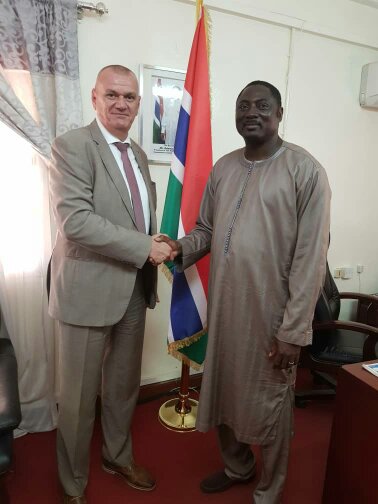
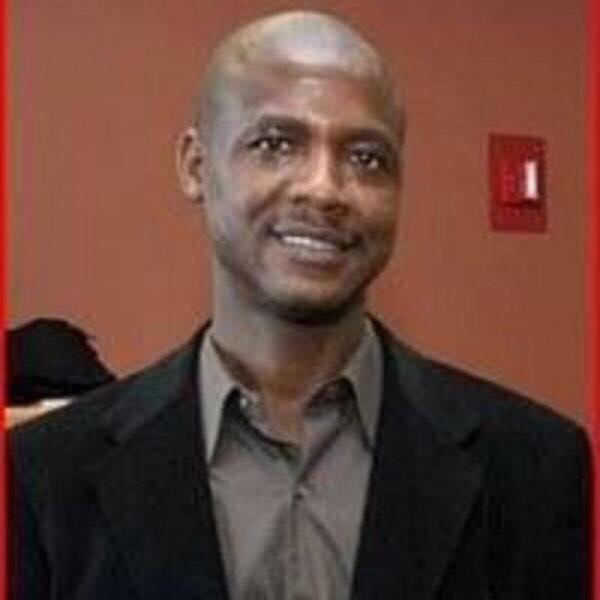
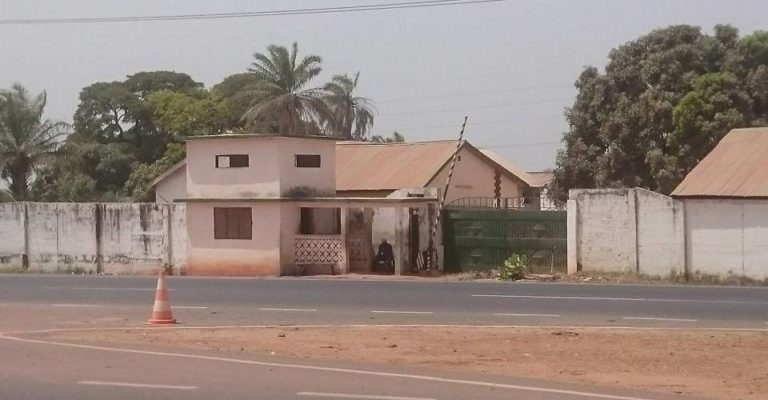
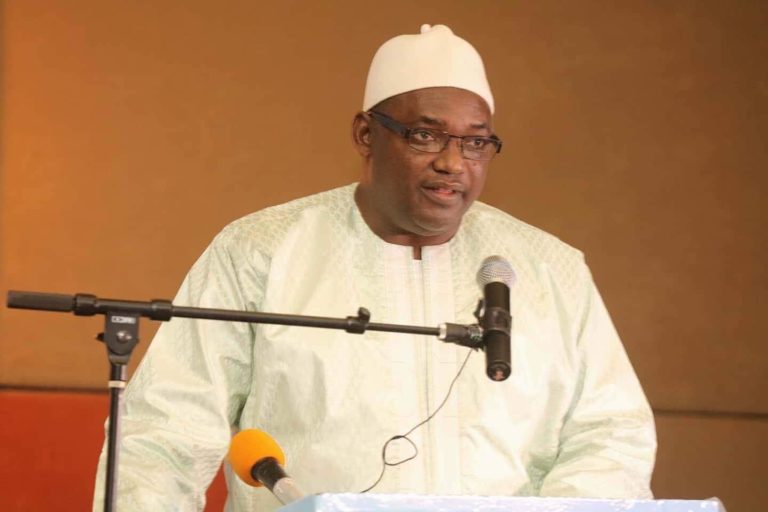
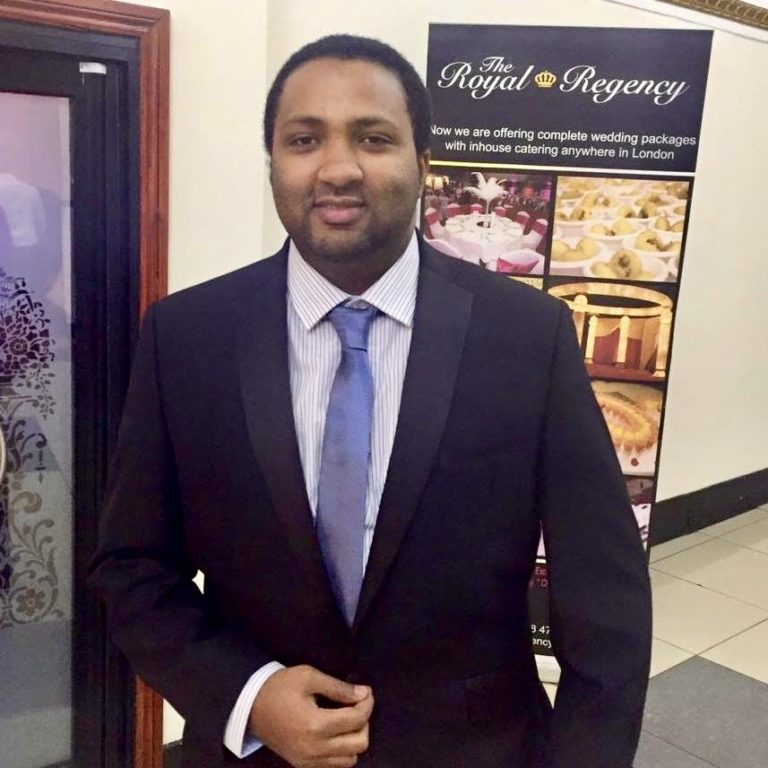
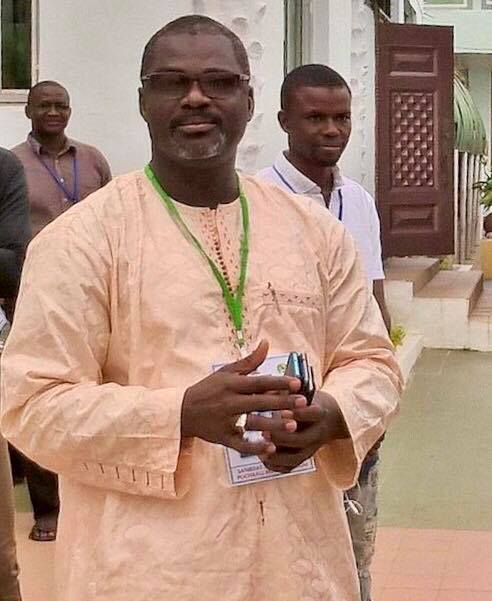
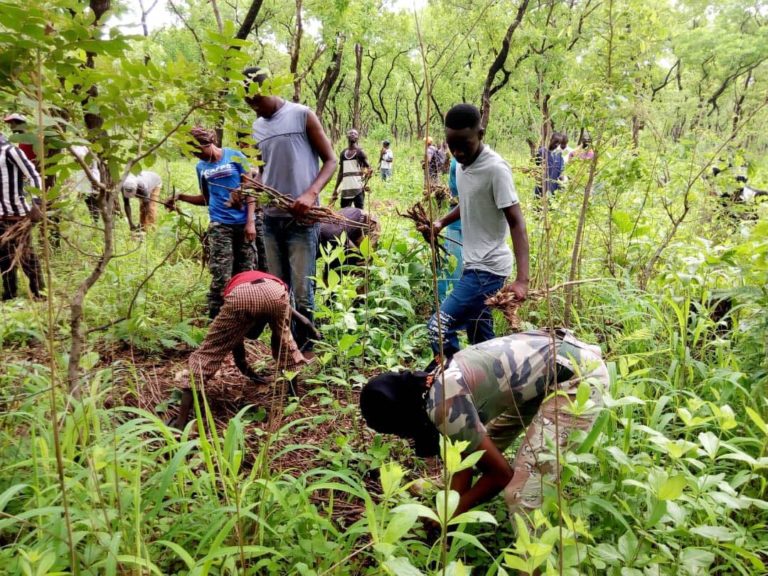
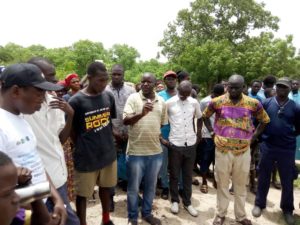
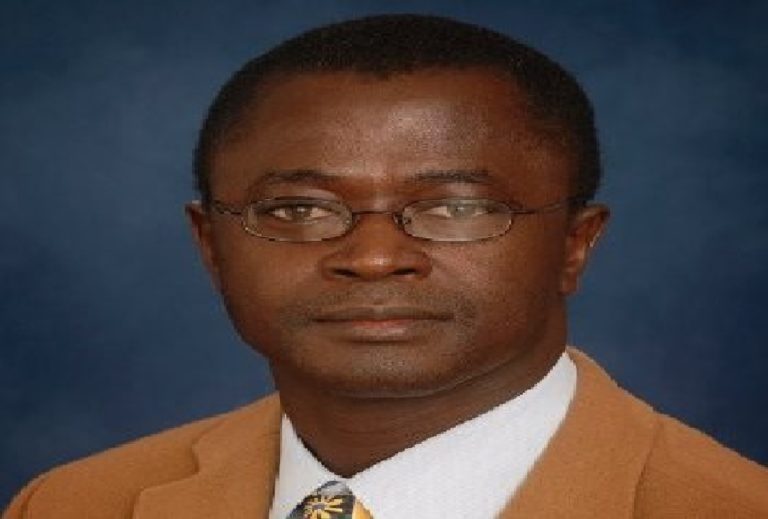
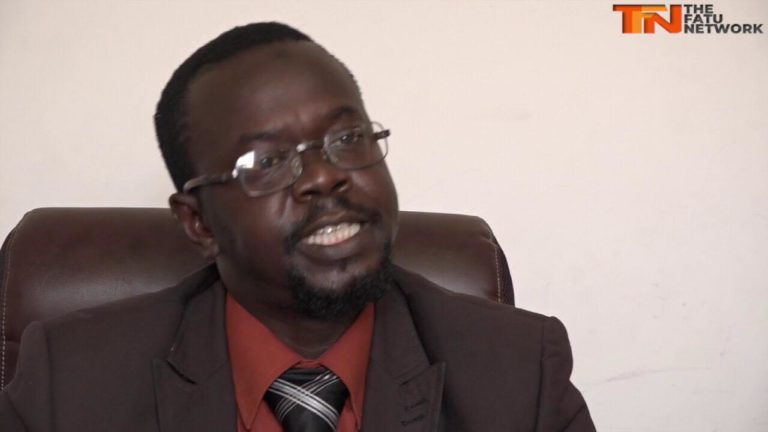
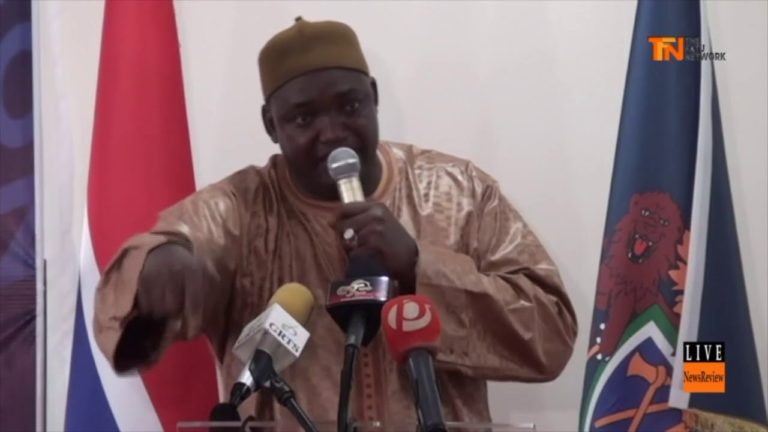
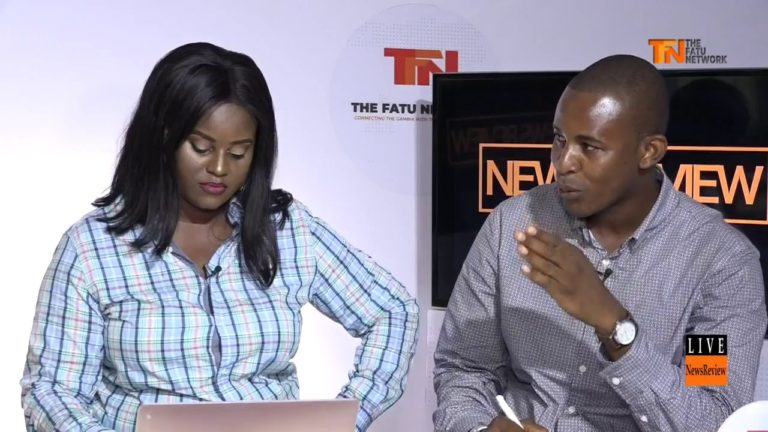
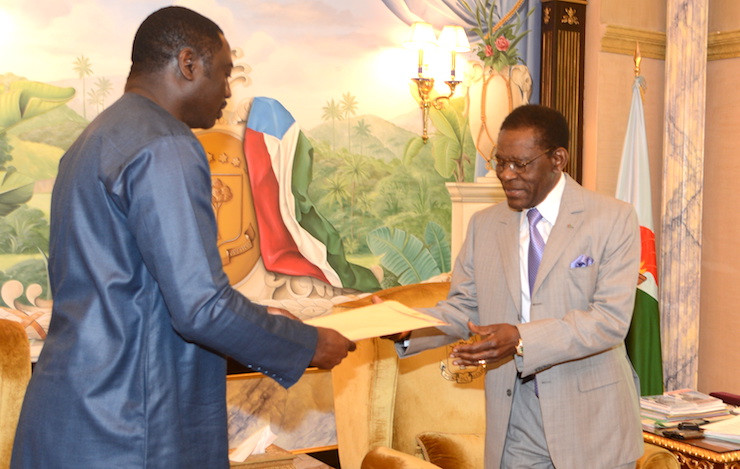
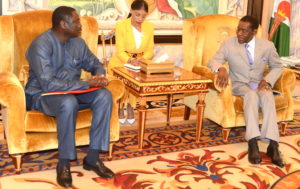
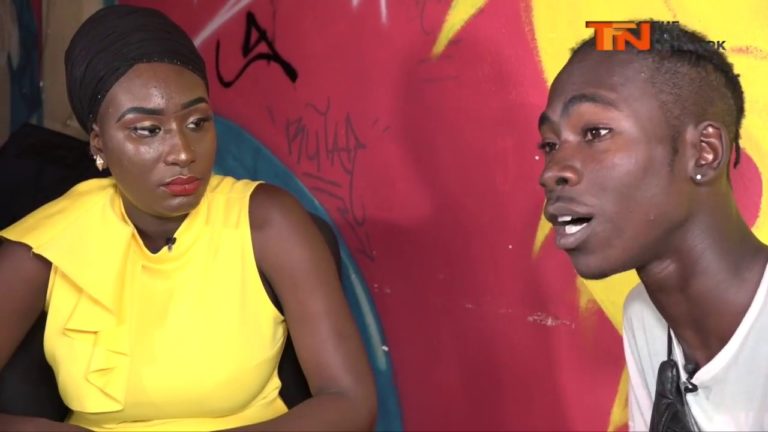
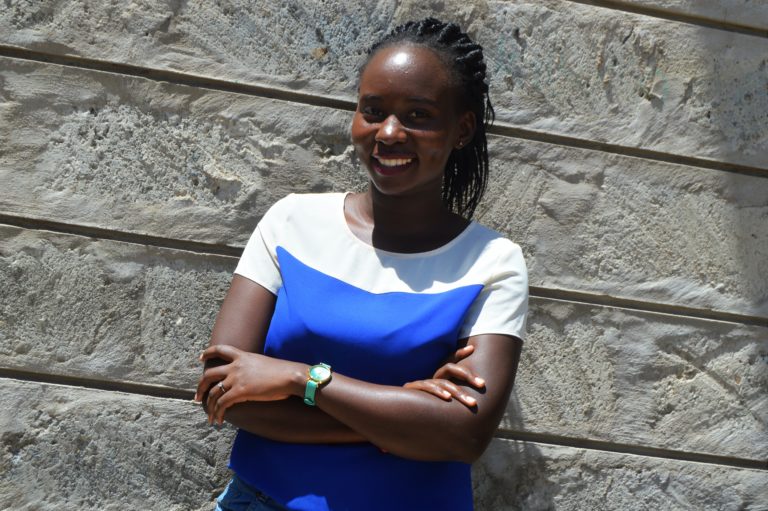
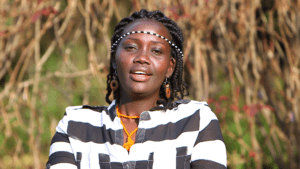
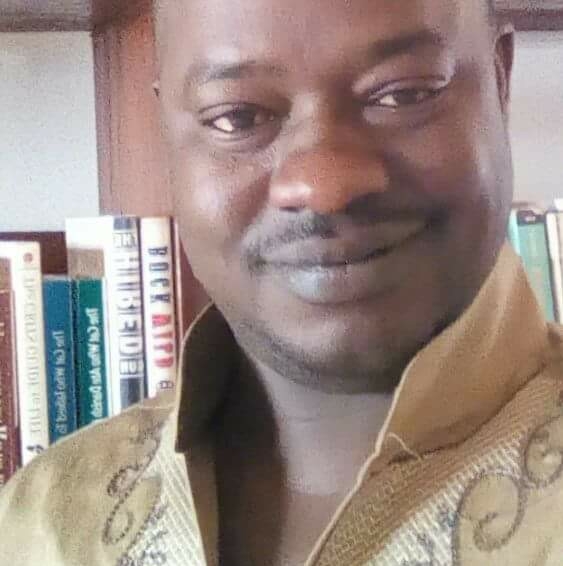
The Job of Press Secretary really is About Plights & Pains
Alagi Yorro Jallow
Why would a lamb find himself in the wolf land of politics and politicking? The Washington Post of 30, May 2014 described being a presidential spokesman as “the ultimate burnout job”. The job of government journalist or press secretary really is about plights and pains. It is not a job for the meek. It is a permanent, constant contention with spins, contra-spins and anti-spins. It is a pain no one wants to suffer twice.
Ari Fleischer, US President George W. Bush’s first press secretary, captured the pains of the job very accurately: “The grueling part isn’t just the hours, which are bad, it’s that your mind never gets a rest. You’re always war gaming. It’s constant intellectual chess. You’re thinking of the next question that the press is going to ask, and that leads to the next question and the next question et cetera, et cetera.” Indeed, in US history, two press secretaries died on the job – both of heart attack, one right on his desk.
I do not know how many persons in government today wish to be exposed to the unfriendly, harsh realities of a media that does not take prisoners. When you work in government, all eyes, seen and unseen, are watching you. You must therefore choose what to say and what to write.
Defending any government anywhere is one of the most difficult jobs. You write and cancel words and write again. You query your every sentence and give answers to every unasked question before you push the information out.
It becomes particularly tricky and risky when the social media is the preferred channel. The social media is an agent of change. It is democracy bearing another name. That, ironically, makes it a forest of doves, lions, snakes and scorpions. The doves are very few and they do not stick out their fragile necks in defense of persons marked for online demolition. On the social media, warriors have no place in their heart to think of taking prisoners.
Experience in politics and government teaches better than the best teacher. For the journalist in government, every experience, no matter how unpleasant, enriches one’s appreciation of that thing called power and its demands. And it is not as if the system itself is appreciative of valiant efforts. It has a way of throwing the unwary to the dogs. It is the very home of treachery. But then, you become a better journalist only after going through the university of government appointment, especially if you are wise.
Speaking for a president or a politician can be very enabling. It empowers and makes the unknown renowned. You do not leave the job and need any introduction anywhere again. You are either popular or notorious or a miserable mix of both. A White House press secretary said it was the best job he ever had, “and the best job that the people who are there now will ever have. If you like politics and policy and the news media and how they interact, you’ll have the most impact you’ll ever have in your career. You get this incredible view of history being made. And when the leader of the free world turns to you in a meeting and asks you, ‘What do you think?’ that’s pretty exciting.” Around here in the Gambia, you share the limelight with the big boss to the envy of powerful people around him. That is why a press secretary is as blessed (and endangered) as the boss. You announce appointments, sign sack statements, spinning and gaslighting. Your name is a household item and on the lips of every kid who watches television and listens to radio. But the glitz ends right there. If you are the unwary, unlucky type, you soon get knifed by power and powerful interests. When Ronald Reagan was shot, his press secretary got hit with him. He barely lived to tell the story. When that happens, you walk down the dusty road lonely, alone.
Journalists working for State House rarely show their frustrations with their colleagues’ operations. But they are government people hired to “manage” the media and spin. So how do they do that when they are blinded for months? Does the perception in there suggest that these two gentlemen are just like the journalist out there who cannot be wholly trusted with information? No government anywhere likes the press. But the job of the press, really, is to make governments uncomfortable. It is when the press and the government fail to share the same bed that the people can safely say goodnight and sleep.
Otherwise, the morning could see the people asking where their freedom is. President Richard Nixon was one of the most unfortunate with the media among US presidents. He routinely blamed the woes of his government on a media which he accused of “distorted, even disloyal reporting.” From asking his media handlers to “build a mythology” around his person, a mismanaged, defeated Nixon had to say in exasperation:
“Our worst enemies seem to be the press.” He was too conceited to know that he was his own worst enemy. The media merely assisted him. The man ended up a classroom example of a president firmly held accountable by a determined media.
A spokesperson’s problem does not start and end with the questions his colleagues ask him. In the Gambia, that is just a little jab in the head. Your major headache could really be the boss and the company he keeps. If the boss is good, he could be unfortunate to have hawks as friends. The mouthpiece is a dignified night soil man who clears the mess before the day breaks.
When you do such for the system, fairness demands appreciation. But does it come at all? It depends on who the boss talks with. Manipulative friends around the boss kill the spokesperson’s spirit. These are men and women who know the media job more than anyone else. These ones pick holes regularly in the media engagements of their friend. They feed him regularly with what his press secretary did not do and what he over-did. It takes the lion hearted to keep going when these know-all behemoths bring their dirt. Now, how much of this has been lot? Joe Lockhart, another White House spokesman, once said that he knew he was doing his job well when everyone was mad at him.
“You walk into the briefing room and the reporters yell at you because you haven’t given them enough. And you walk into the next room and (government officials) are screaming at you for telling the press too much. That’s when you know you’ve hit the sweet spot.” Not everyone feels so. Many would wonder why take this thankless job in the first place.
Greater people in history experienced it. It made them better and immortal. Abraham Lincoln gave democracy its modern definition. He never had it easy with the media and media manipulators, the “dominant coalition.” But he didn’t shut himself in. On one occasion, he said after reading a series of attacks in some newspapers he asked himself:
“Abraham Lincoln, are you a man or a dog?” It was that bad, but his noble spirit took over and elevated him to a better leader.